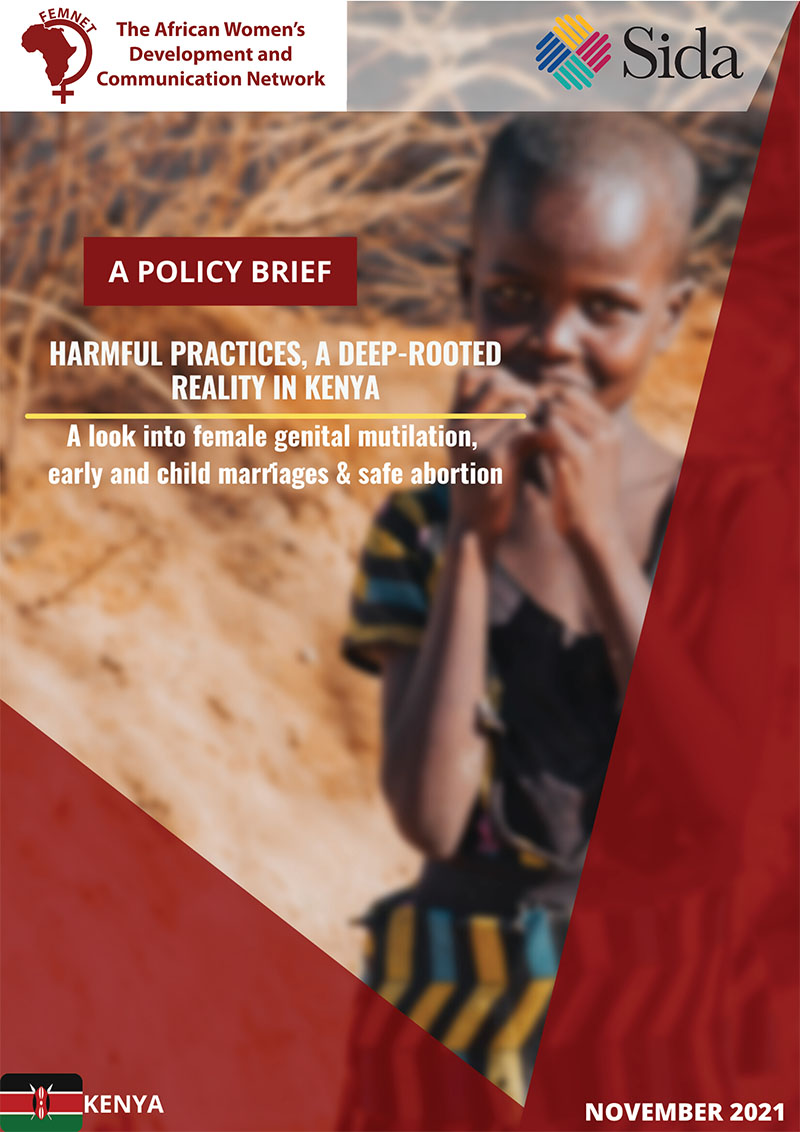
A Policy Brief: Harmful practices, A deep-rooted reality in Kenya
Harmful traditional practices such as early marriage, female genital mutilation (FGM), as well as access to safe abortion have a major effect in the lives of girls and this last to their womanhood. While there has been a reduction in the incidence of these practices, they are still widely practiced in some communities and remain major barriers to improving the health and wellbeing of girls and women in Kenya. Harmful practices are both underpinned, and perpetuated by, gender inequality and harmful social norms that value girls less than boy. According to the June 2020 UNFPA report, girls who are married early are also more likely to perpetuate stereotypical gender roles and to transmit these norms to their own children – making very difficult to end such practice s. Without intervention from governments, organizations, and activists, many more young girls in Kenya will continue to be subjected to harmful practices and lack access to safe abortion.
This policy brief follows a broad overview of issues related to harmful practices, access to safe abortion as well as the applicable legal framework. The brief contains a summary of some of the initiatives undertaken by Kenya to eliminate such practices, and an analysis of the continued challenges. The report contains a number of conclusions and recommendations that policy makers, the government, civil society and relevant players can draw from, and expand thereon.
